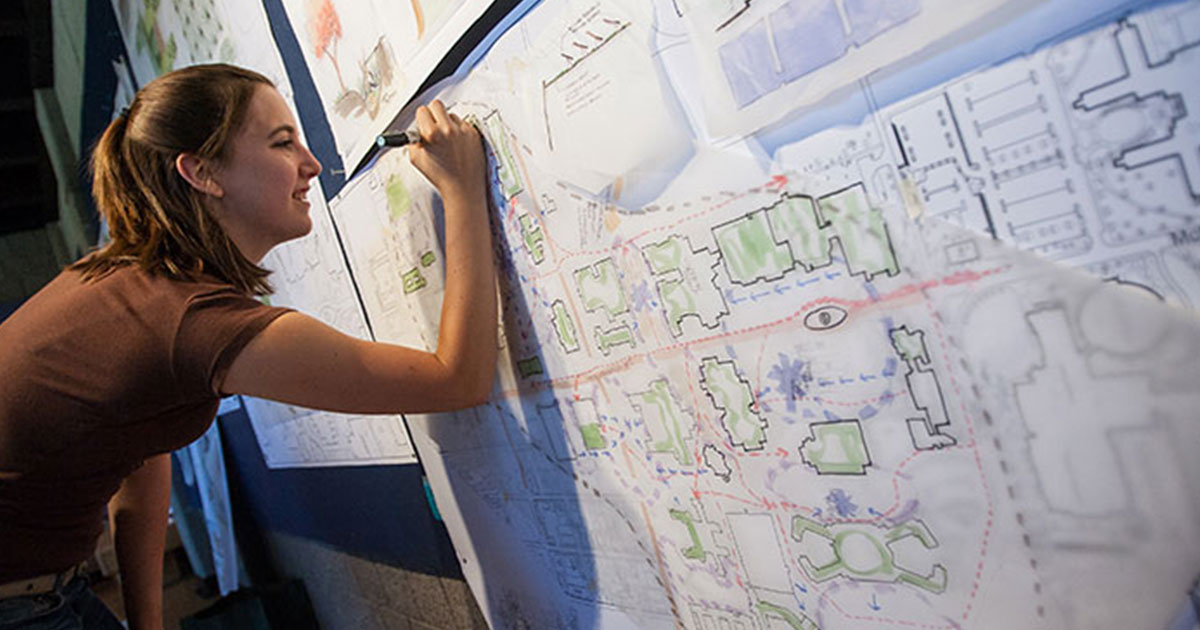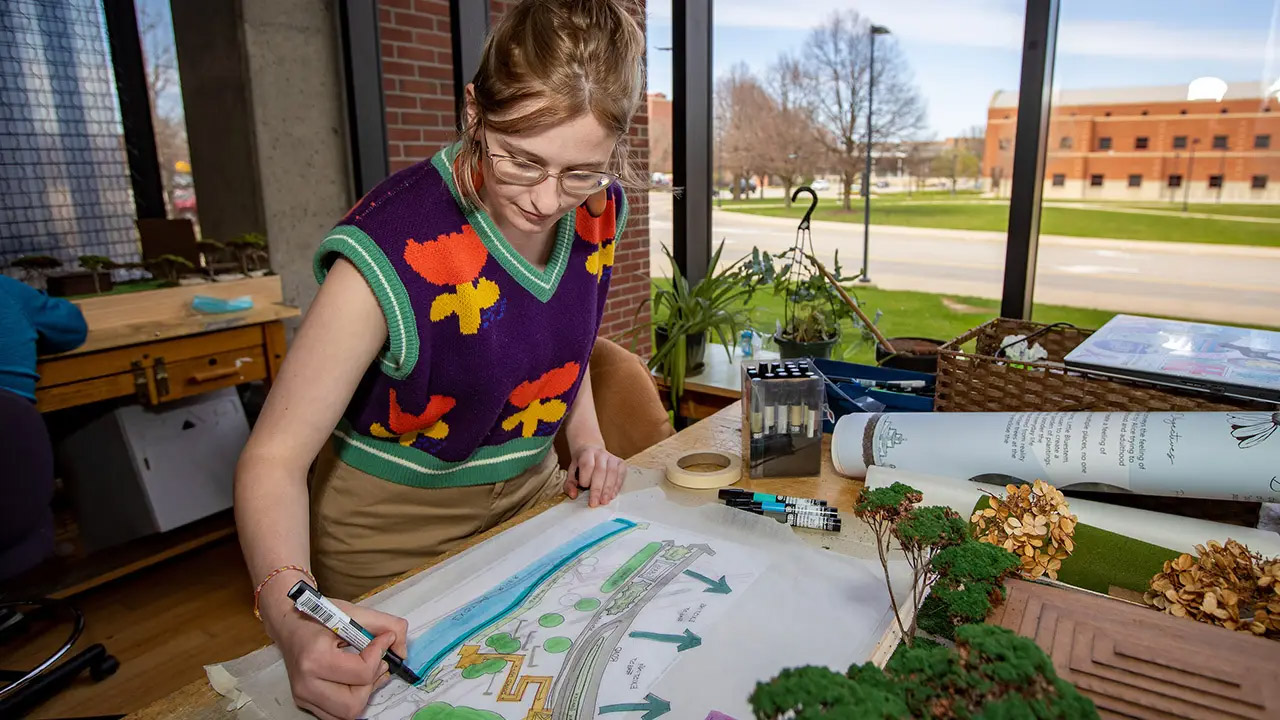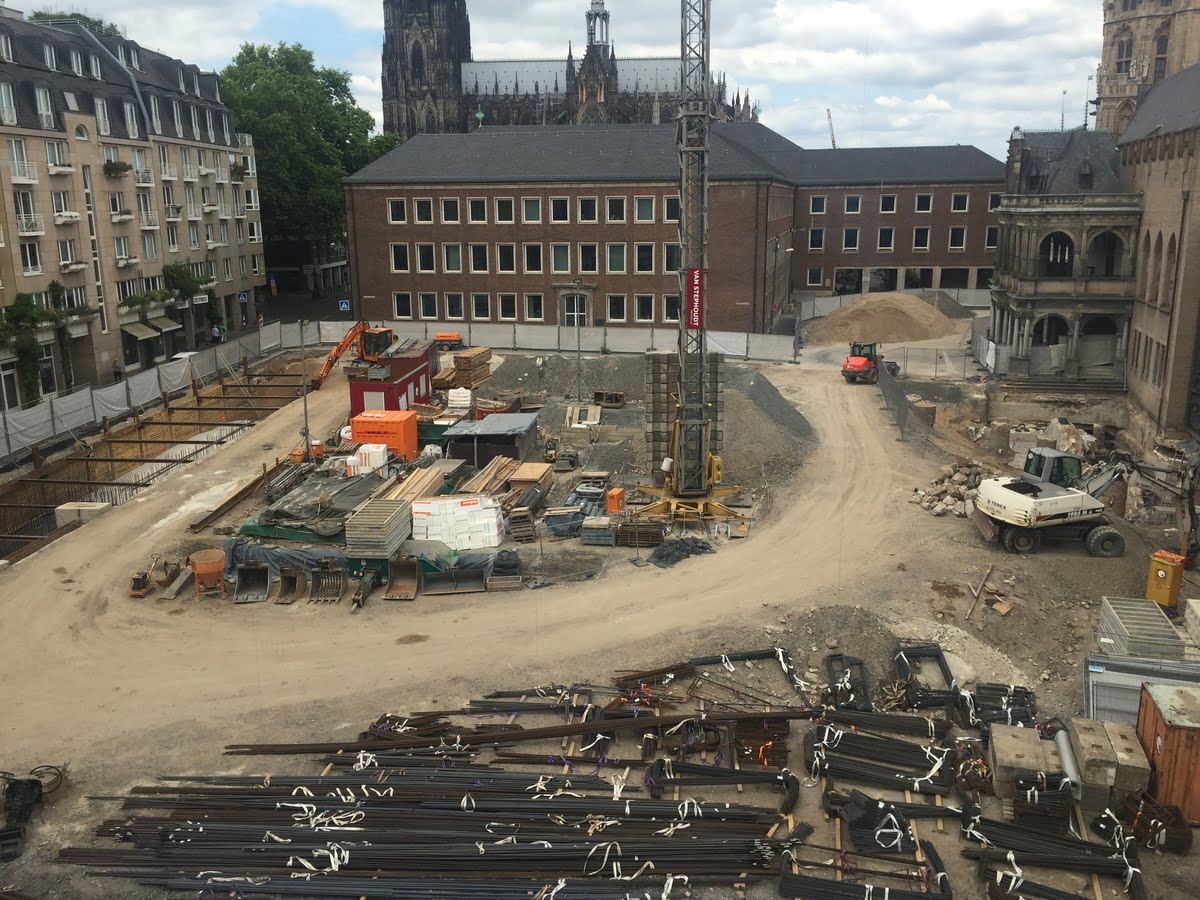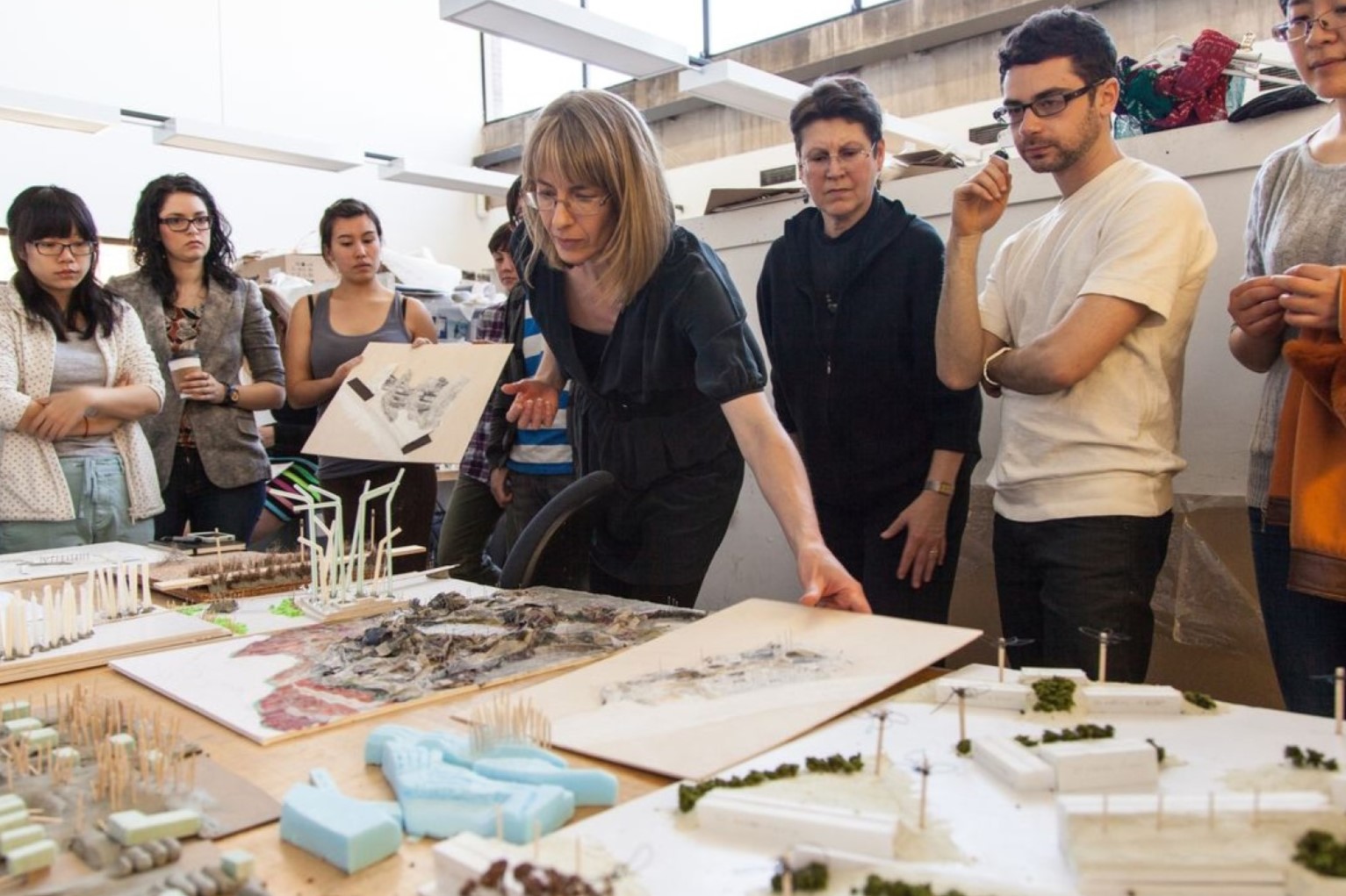Home>diy>Building & Construction>What Is A Construction Technology Degree


Building & Construction
What Is A Construction Technology Degree
Modified: January 23, 2024
Discover the importance of a construction technology degree in the field of building construction. Gain the necessary knowledge and skills for a successful career in this dynamic industry.
(Many of the links in this article redirect to a specific reviewed product. Your purchase of these products through affiliate links helps to generate commission for Storables.com, at no extra cost. Learn more)
Introduction
Welcome to the world of construction technology! In this article, we will explore the fascinating field of construction technology and the benefits of pursuing a degree in this rapidly growing industry. Whether you are a construction enthusiast, looking to advance your career, or simply curious about what this field has to offer, this article will provide you with valuable insights.
Construction technology, also known as construction engineering technology or building construction technology, is an interdisciplinary field that combines the principles of construction and engineering with cutting-edge technology. It involves the use of innovative tools, software, and techniques to improve the efficiency, safety, and sustainability of construction projects.
As technology continues to evolve, the construction industry is undergoing a remarkable transformation. From 3D modeling and building information modeling (BIM) to drones and robotics, the integration of technology has revolutionized the way construction projects are designed, planned, and executed.
A degree in construction technology equips individuals with the knowledge and skills needed to excel in this dynamic industry. Graduates of construction technology programs are prepared to oversee construction projects, manage teams, implement technological advancements, and ensure compliance with industry standards and regulations.
So, why should you consider pursuing a degree in construction technology? Let’s explore the benefits and opportunities that this field has to offer.
Key Takeaways:
- Embrace the Future of Construction
A degree in construction technology equips you with in-demand skills, diverse career opportunities, and hands-on experience to thrive in a rapidly evolving industry driven by cutting-edge technology. - Build Your Path to Success
With a construction technology degree, you can pursue rewarding careers as a construction manager, BIM specialist, estimator, sustainability consultant, and more, while enjoying promising salary prospects in a dynamic and innovative field.
Overview of Construction Technology
Construction technology encompasses a wide range of concepts and practices that are geared toward improving the construction process, from initial planning and design to project completion. It involves the integration of various technologies, such as virtual reality, augmented reality, artificial intelligence, and automation, to enhance productivity, accuracy, and safety in construction projects.
One of the key components of construction technology is Building Information Modeling (BIM), which is a digital representation of a construction project that includes the physical and functional characteristics of the project. BIM enables stakeholders to visualize the project in a virtual environment, facilitating efficient planning, collaboration, and decision-making.
Another important aspect of construction technology is the use of drones. Drones can capture aerial images and videos of construction sites, providing valuable insights and data for project monitoring, surveying, and documentation. Additionally, drones can be used for inspecting inaccessible areas, enhancing safety and efficiency in construction operations.
Automation is another significant advancement in construction technology. The automation of repetitive tasks, such as bricklaying, concrete pouring, and material handling, can significantly reduce labor costs and improve efficiency. Robotic technologies, such as autonomous construction vehicles and 3D-printing robots, are also being increasingly utilized in construction projects.
Virtual reality (VR) and augmented reality (AR) are transforming the way architects, engineers, and contractors communicate and visualize construction projects. With VR and AR technologies, stakeholders can experience a virtual walkthrough of a building before it is constructed, enabling better design evaluation and improved client satisfaction.
Sustainability is also a major focus of construction technology. The integration of eco-friendly materials, energy-efficient systems, and renewable energy solutions into construction projects helps reduce environmental impact and promote sustainable practices.
Overall, construction technology is reshaping the construction industry, making it more efficient, cost-effective, and sustainable. By embracing technological advancements, construction professionals can streamline processes, mitigate risks, improve communication, and deliver projects on time and within budget.
Benefits of a Construction Technology Degree
Pursuing a degree in construction technology offers a multitude of benefits for individuals looking to establish a successful career in the construction industry. Here are some of the key advantages of obtaining a construction technology degree:
- In-Demand Skills: A construction technology degree equips you with the necessary skills to excel in the modern construction industry. You will receive training in areas such as BIM, construction project management, sustainable construction practices, and emerging technologies. These skills are in high demand by employers seeking qualified professionals who can adapt to the rapidly evolving technological landscape.
- Career Opportunities: Graduates of construction technology programs have a wide range of career opportunities to choose from. You can pursue careers as construction managers, project engineers, BIM specialists, sustainability consultants, estimators, or construction technology analysts, among others. The versatility of this degree allows you to explore different areas of the construction industry based on your interests and strengths.
- Industry Connections: During your studies, you will have the opportunity to network with industry professionals, guest speakers, and fellow students. Establishing connections with individuals already working in the construction field can open doors to internship opportunities, job referrals, and valuable industry insights. These connections can greatly enhance your career prospects and give you a competitive edge in the job market.
- Hands-On Experience: Many construction technology programs emphasize hands-on learning experiences. Through internships, cooperative education programs, and hands-on projects, you will gain practical knowledge and skills that are directly applicable to real-world construction scenarios. This practical experience will give you a competitive advantage when entering the job market.
- Industry-Relevant Curriculum: Construction technology degree programs are designed to meet the needs and demands of the industry. The curriculum is tailored to provide you with a comprehensive understanding of construction processes, project planning and management, sustainable construction practices, construction law and regulations, and emerging technologies. This industry-focused education ensures that you are well-prepared to tackle the challenges of the construction field.
- Personal Growth and Development: Pursuing a construction technology degree not only enhances your professional skills but also promotes personal growth and development. You will develop critical thinking, problem-solving, and communication skills that are essential for success in any field. Additionally, you will gain a deeper appreciation for the complexities of construction projects and the impact they have on communities and the environment.
By obtaining a construction technology degree, you position yourself for a rewarding and fulfilling career in the construction industry. The combination of technical knowledge, practical skills, and industry connections will set you apart as a competent and valuable professional in a rapidly evolving field.
Curriculum and Coursework
A construction technology degree program typically consists of a well-rounded curriculum that combines classroom instruction, laboratory work, and practical experiences. The specific courses offered may vary depending on the institution, but here are some common areas of study you can expect to encounter:
- Construction Materials and Methods: This course provides an overview of different construction materials and their properties, as well as the methods and techniques used in construction projects. Topics may include foundation systems, framing, roofing, electrical and plumbing installations, and finishing materials.
- Construction Drawing and Blueprint Reading: In this course, you will learn how to interpret construction drawings and blueprints, gaining the ability to visualize and understand the plans and specifications of construction projects. You will learn to identify various symbols, notations, and dimensions commonly used in construction documents.
- Building Information Modeling (BIM): BIM is a critical component of construction technology. This course introduces students to BIM software and teaches them how to create, manage, and analyze 3D digital models of buildings. Students will learn how to collaborate with architects, engineers, and contractors using BIM platforms.
- Construction Estimating and Cost Management: This course focuses on the techniques and principles used in estimating construction costs. Students will learn how to analyze plans and specifications to estimate material quantities, labor costs, and project expenses. Topics may also include cost control, budgeting, and project financial management.
- Construction Project Management: Project management is an essential skill for construction professionals. This course covers the fundamentals of project management, including project planning, scheduling, budgeting, risk management, and communication. Students will learn how to effectively lead and manage construction projects to ensure they are completed on time and within budget.
- Sustainable Construction Practices: With a growing emphasis on sustainability, this course explores eco-friendly and energy-efficient construction practices. Students will learn about green building materials, renewable energy systems, waste management, and sustainable design principles. The course may also cover topics such as LEED certification and environmental regulations.
- Construction Safety and Risk Management: Safety is a paramount concern in the construction industry. This course focuses on identifying and mitigating safety hazards in construction sites. Students will learn about OSHA regulations, personal protective equipment, job site inspections, and accident prevention strategies.
- Emerging Technologies in Construction: This course introduces students to the latest advancements in construction technology. Topics may include virtual reality, augmented reality, drones, robotics, and automation. Students will explore how these technologies are reshaping the construction industry and their potential applications in different construction projects.
These are just a few examples of the courses you may encounter in a construction technology degree program. The curriculum is designed to provide you with a comprehensive understanding of construction processes, technologies, and management principles to prepare you for a successful career in the industry.
A construction technology degree provides a strong foundation in construction methods, materials, project management, and sustainable building practices. It can lead to various career opportunities in the construction industry, including construction management, estimating, and building inspection.
Job Opportunities for Construction Technology Graduates
A degree in construction technology opens up a wide range of job opportunities in the construction industry. As technology continues to shape the field, construction technology graduates are in high demand by employers seeking individuals with a unique blend of construction knowledge and technological expertise. Here are some potential career paths for construction technology graduates:
- Construction Manager: Construction managers oversee and coordinate all aspects of construction projects. They are responsible for planning, budgeting, coordinating resources, and ensuring projects are completed on time and within budget. With their construction technology background, graduates are well-equipped to utilize software and technology tools to streamline project management processes.
- Building Information Modeling (BIM) Specialist: BIM specialists play a crucial role in the design and construction process. They create and maintain accurate digital representations of building projects using BIM software. Construction technology graduates are well-suited for positions as BIM specialists, as they have extensive knowledge of BIM principles and can effectively collaborate with architects, engineers, and contractors to ensure accurate project modeling.
- Estimator: Estimators are responsible for analyzing construction plans and specifications to determine the materials, labor, and costs required for a project. Construction technology graduates with a strong understanding of construction materials and methods, as well as the ability to utilize software tools for cost estimation, excel in this role.
- Sustainability Consultant: With a focus on sustainable construction practices, construction technology graduates can pursue careers as sustainability consultants. They help organizations implement environmentally friendly strategies and identify ways to reduce their carbon footprint. Graduates with knowledge of green building materials, energy-efficient systems, and sustainable design principles are highly sought after in this role.
- Project Engineer: Project engineers play a critical role in construction projects, providing technical expertise and support to construction managers. With their strong background in construction technology, graduates can effectively manage project documentation, coordinate with subcontractors, and implement technological solutions to streamline project execution.
- Technology Analyst: Construction technology graduates can work as technology analysts, evaluating and implementing new technologies and software tools within construction companies. Their understanding of construction processes and technological advancements enables them to assess the feasibility and benefits of incorporating new technologies into construction projects.
- Construction Safety Manager: Safety is a top priority in the construction industry. Construction technology graduates can pursue careers as safety managers, ensuring that construction sites adhere to safety regulations and that proper safety measures are in place. They can utilize their knowledge of emerging technologies to implement safety protocols and practices.
These are just a few examples of the many job opportunities available to construction technology graduates. The skills and knowledge acquired through a construction technology degree program make graduates versatile and in-demand professionals in a rapidly evolving industry.
Salary Outlook for Construction Technology Professionals
With the demand for construction technology professionals on the rise, the salary outlook for individuals in this field is promising. The salaries of construction technology professionals can vary depending on factors such as job role, level of experience, geographic location, and the size and type of the construction company. Generally, however, construction technology professionals can expect competitive compensation for their skills and expertise.
Here is an overview of the salary ranges for some common job roles within the construction technology field:
- Construction Manager: Construction managers play a crucial role in overseeing and coordinating construction projects. The average salary for construction managers typically ranges from $70,000 to $130,000 per year. Higher salaries are often associated with more senior-level positions or those managing larger and more complex projects.
- Building Information Modeling (BIM) Specialist: BIM specialists are responsible for creating and managing digital models of construction projects. The average salary for BIM specialists can range from $60,000 to $100,000 per year, depending on their experience, expertise, and the location and size of the employing organization.
- Estimator: Estimators analyze construction plans and specifications to estimate project costs. The salary for estimators in the construction technology field can range from $50,000 to $90,000 per year, depending on their level of experience and the complexity of the projects they work on.
- Sustainability Consultant: Sustainability consultants focus on implementing environmentally friendly practices in construction projects. Salary ranges for sustainability consultants vary widely depending on their experience and the sector they work in. On average, sustainability consultants can earn between $60,000 and $100,000 per year.
- Project Engineer: Project engineers provide technical support and assistance on construction projects. Their salaries can range from $50,000 to $90,000 per year, depending on factors such as experience, level of responsibility, and the size and complexity of the projects they work on.
- Technology Analyst: Technology analysts evaluate and implement new technologies in the construction industry. Salaries for technology analysts can vary depending on their level of experience and the size and type of the employing organization. On average, technology analysts can earn between $60,000 and $100,000 per year.
- Construction Safety Manager: Construction safety managers ensure that safety protocols are in place on construction sites. Their salaries can range from $50,000 to $90,000 per year, depending on their experience and the complexity and size of the construction projects they oversee.
It is important to note that these salary ranges are estimates and can vary based on market conditions and other factors. Additionally, salaries may be higher in certain regions where the demand for construction technology professionals is particularly high.
Overall, the salary outlook for construction technology professionals is favorable, with competitive compensation packages offered for their specialized skills and expertise. As the construction industry continues to embrace technology, the demand for skilled professionals in this field is expected to grow, which may positively impact salary ranges and advancement opportunities.
Top Universities with Construction Technology Programs
When considering a degree in construction technology, it is important to choose a reputable university that offers a comprehensive program with a strong emphasis on both construction principles and technological advancements. Below are some of the top universities known for their exceptional construction technology programs:
- Purdue University: Purdue University offers a renowned Construction Engineering and Management program that focuses on the integration of technology and construction processes. The program emphasizes hands-on learning experiences and provides students with a strong foundation in construction principles, project management, and sustainable practices.
- Georgia Institute of Technology: The School of Building Construction at Georgia Tech offers a construction management program that combines construction management principles with cutting-edge technology. Students gain hands-on experience through industry partnerships and have access to state-of-the-art facilities, such as the Advanced Technology Development Center (ATDC), which fosters innovative construction research and development.
- Texas A&M University: Texas A&M’s Construction Science program prepares students for careers in construction management, focusing on technology, sustainability, and leadership. The program combines classroom instruction with real-world experiences, allowing students to work on actual construction projects and gain valuable hands-on experience.
- University of Southern California (USC): USC offers a Bachelor of Science in Civil Engineering with a specialization in Construction Engineering and Management. The program emphasizes the integration of technology in construction projects and provides students with a strong foundation in project management, estimating, scheduling, and construction law.
- Virginia Tech: Virginia Tech’s Department of Building Construction offers a comprehensive program that prepares students for careers in construction management and sustainable building practices. The program focuses on hands-on learning, research opportunities, and industry partnerships to provide students with a well-rounded education in construction technology.
- University of Florida: The M.E. Rinker, Sr. School of Construction Management at the University of Florida offers a program that emphasizes the use of technology in construction processes. Students have access to state-of-the-art facilities, such as the Powell Family Structures and Materials Laboratory, where they can gain practical experience using cutting-edge construction technologies.
- Clemson University: Clemson University’s Department of Construction Science and Management offers a program that combines construction management principles with emerging technologies. Students have the opportunity to work on interdisciplinary projects and gain hands-on experience with virtual design and construction technologies.
These universities are just a sample of the institutions that offer strong construction technology programs. When researching universities, consider factors such as faculty expertise, industry connections, internship opportunities, research initiatives, and alumni success to find the program that best aligns with your career goals and interests.
Attending a reputable university with a strong construction technology program can provide you with a solid foundation of knowledge and skills, setting you up for a successful and fulfilling career in the construction industry.
Conclusion
Construction technology is revolutionizing the construction industry, offering innovative solutions to improve efficiency, safety, and sustainability. Pursuing a degree in construction technology provides individuals with a unique blend of construction knowledge and cutting-edge technological skills, making them highly sought after by employers in the field.
Throughout this article, we have explored the benefits of obtaining a construction technology degree, including the acquisition of in-demand skills, a wide range of career opportunities, and valuable industry connections. We have also discussed the diverse curriculum and coursework involved in a construction technology program, which prepares graduates for the complexities of the construction industry.
The construction technology field offers various job opportunities, such as construction managers, BIM specialists, estimators, sustainability consultants, project engineers, technology analysts, and construction safety managers. These roles require a strong understanding of construction principles, project management, and emerging technologies.
Additionally, the salary outlook for construction technology professionals is promising. With the integration of technology into the construction industry, employers are willing to offer competitive compensation for individuals with specialized skills and knowledge in construction technology.
Choosing the right university to pursue a degree in construction technology is crucial. Reputable institutions like Purdue University, Georgia Institute of Technology, and Texas A&M University offer comprehensive programs that emphasize hands-on learning experiences and the integration of technology into construction practices.
As technology continues to advance, the demand for construction technology professionals will continue to grow. By staying up-to-date with the latest technological advancements and industry best practices, construction technology graduates can excel in their careers and contribute to the ongoing transformation of the construction industry.
In conclusion, a degree in construction technology opens up a world of opportunities in an evolving and dynamic industry. By combining construction knowledge with technological expertise, individuals can make a significant impact on the efficiency, safety, and sustainability of construction projects. So, if you have a passion for construction and a fascination with technology, a construction technology degree may be the perfect path for your future success.
Frequently Asked Questions about What Is A Construction Technology Degree
Was this page helpful?
At Storables.com, we guarantee accurate and reliable information. Our content, validated by Expert Board Contributors, is crafted following stringent Editorial Policies. We're committed to providing you with well-researched, expert-backed insights for all your informational needs.















0 thoughts on “What Is A Construction Technology Degree”